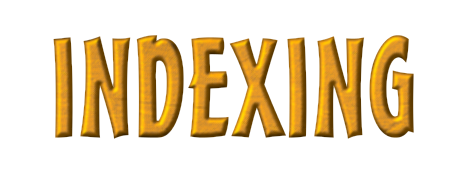Curriculum Development for Islamic Cultural History Subjects
Abstract
This article examines three questions: How is the development of the SKI curriculum of KMA No. 183 Madrasah 2019, How is the Implementation of SKI subject curriculum development based on KMA No. 184 of 2019 in Madrasah and how are the results of the development and implementation of SKI subjects KMA No. 183 and 184 MTs Ma'Arif NU in 2019 in Toruakat. This research is a type of qualitative research that uses observation, observation, and documentation. Primary and secondary data are the data sources used in the research. Reduction, submission, and verification are the data collection methods used. The results show that real activities or other activities involved in the learning process, such as practical exercises, are a real form of how the curriculum can be applied. This is in line with the statement of the principal of MTs Ma'Arif NU Toruakat, which is located in the Bolaang Mongondow region, especially Dumoga or Toruakat. The purpose of the development and implementation of the 2019 PAI curriculum and KMA Arabic No. 183 is to gradually train students to understand the principles of Islam relating to aqidah morals, sharia, and the development of Islamic culture, so that students can fulfill their religious obligations properly whether to Allah SWT, humans, or the universe. The Madrasah Curriculum Implementation Guidelines, stipulated in KMA 184, were issued in 2019 with the aim of encouraging and establishing rules for innovation in the implementation of the madrasah curriculum and providing a legal umbrella to develop the uniqueness of madrasahs, strengthen character, fight educational corruption, and develop religious moderation in madrasahs.
References
Bacq, S., Geoghegan, W., Josefy, M., Stevenson, R., & Williams, T. A. (2020). The COVID-19 Virtual Idea Blitz: Marshaling social entrepreneurship to rapidly respond to urgent grand challenges. Business Horizons, 63(6), 705-723.
Bati, K. (2022). A systematic literature review regarding computational thinking and programming in early childhood education. Education and Information Technologies, 27(2), 2059-2082.
Benite, Z. B. D. (2020). The dao of Muhammad: a cultural history of Muslims in late imperial China. In The Dao of Muhammad. Harvard University Asia Center.
Dasopang, E. P., & Rambe, S. (2023). Modernization of Indonesian Islamic Education: Critical Analysis of Madrasa Curriculum Development. Edumaspul: Jurnal Pendidikan, 7(1), 398-409.
Filgona, J., Sakiyo, J., Gwany, D. M., & Okoronka, A. U. (2020). Motivation in learning. Asian Journal of Education and social studies, 10(4), 16-37.
Harris, D. N., & Martinez-Pabon, V. (2023). Extreme measures: A national descriptive analysis of closure and restructuring of traditional public, charter, and private schools. Education Finance and Policy, 19(1), 32-60.
Jumriani, B. S., Hadi, S., & Mutiani, M. R. I. (2023). 1. Education of Social Regulation Through Social Institution Materials in Social Studies. Kajian-Kajian Lokal Kalimantan Selatan, 6, 1.
Oredipe, T., Kofner, B., Riccio, A., Cage, E., Vincent, J., Kapp, S. K., ... & Gillespie-Lynch, K. (2023). Does learning you are autistic at a younger age lead to better adult outcomes? A participatory exploration of the perspectives of autistic university students. Autism, 27(1), 200-212.
Shaturaev, J. (2021). indonesia: superior policies and management for better education (Community development through Education). Архив научных исследований, 1(1).
Soviany, P., Ionescu, R. T., Rota, P., & Sebe, N. (2022). Curriculum learning: A survey. International Journal of Computer Vision, 130(6), 1526-1565.
Tzenios, N. (2020). Clustering Students for Personalized Health Education Based on Learning Styles. Sage Science Review of Educational Technology, 3(1), 22-36.
Copyright (c) 2024 Journal La Edusci

This work is licensed under a Creative Commons Attribution-ShareAlike 4.0 International License.









